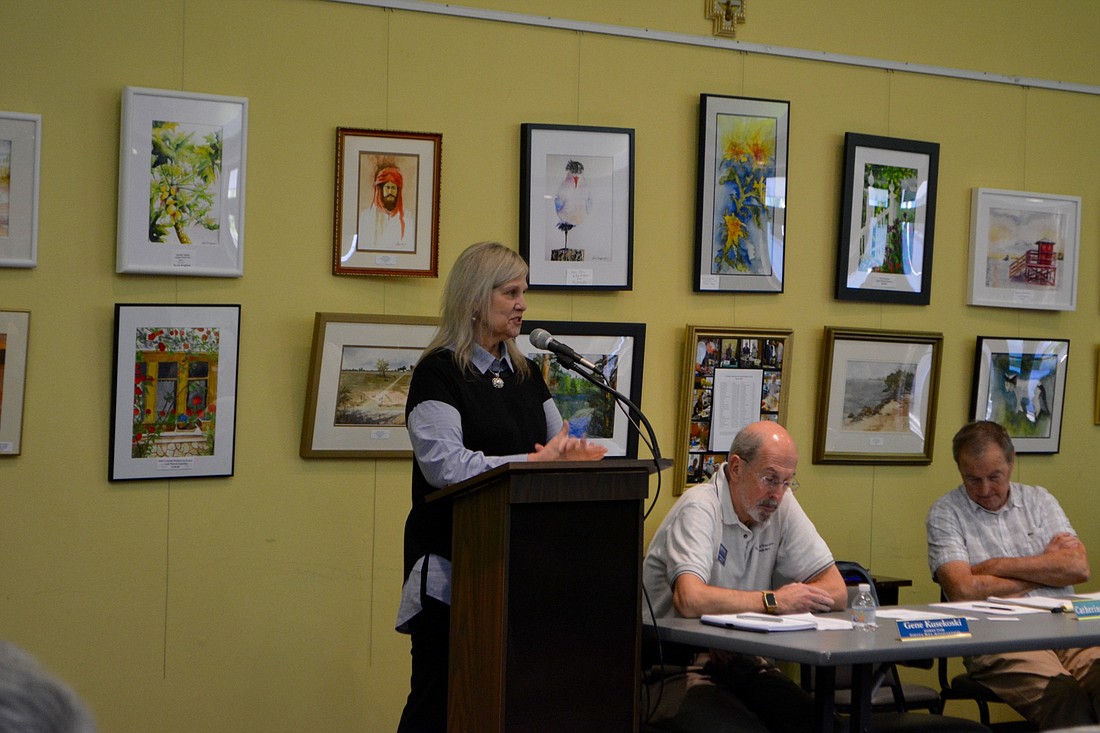- November 23, 2024
-
-
Loading

Loading

Siesta Key Association leaders unanimously approved a plan last week to enter the legal conversation regarding the Siesta Promenade.
Last month, SKA members Jim Wallace and Sarah Kochman filed a legal brief on their own in an attempt to halt the development at Stickney Point Road and US 41. Their brief cited 11 “gross structural and procedural errors” in the Commission’s approval of the Siesta Promenade.
The project was approved in December over the objections of neighbors.
According to residents, the 24-acre development — which features residential, retail and office space in addition to a hotel — will exacerbate existing traffic and safety problems.
Now, SKA leaders decided it was time to publicly throw their support as an organization behind Wallace’s litigation. To achieve this, they plan to file their own amicus curiae brief.
“We will file an amicus brief in support of the [Siesta Promenade] legal petition, meaning we will be a friend of the court, not an intervener,” SKA Vice President Catherine Luckner said. “We’re not taking legal action other than to inform the judge that we’re in support of [halting development]. And we’re hoping other neighborhoods that feel impacted will consider the same.”
The SKA filing is meant to explain how SKA members feel about the development and why they should be considered in the larger conversation.
“We’re saying, ‘We stand in support and, for these reasons, feel impacted by this action.’ And the judge can decide whether to allow it or not,” Luckner said.
According to Luckner, SKA has yet to decide on an attorney to write the brief on their behalf, though she says there are several who would likely provide their expertise pro bono.
Additionally, she says they do not have a specific date in mind on which they will file the brief, though she anticipates it will be completed within the month.
Ultimately, though, SKA members in attendance on Feb. 7 we’re enthusiastic about the proposed amicus brief, but SKA President Gene Kusekoski tried to temper those emotions.
“The courts are unpredictable, I don’t know what will happen,” Kusekoski said. “We have to take the action because we’re just not happy with the way it came out. But there’s just no way to predict what’s going to happen.”